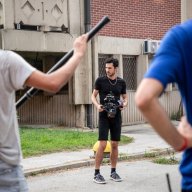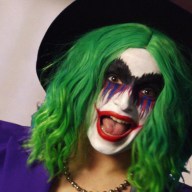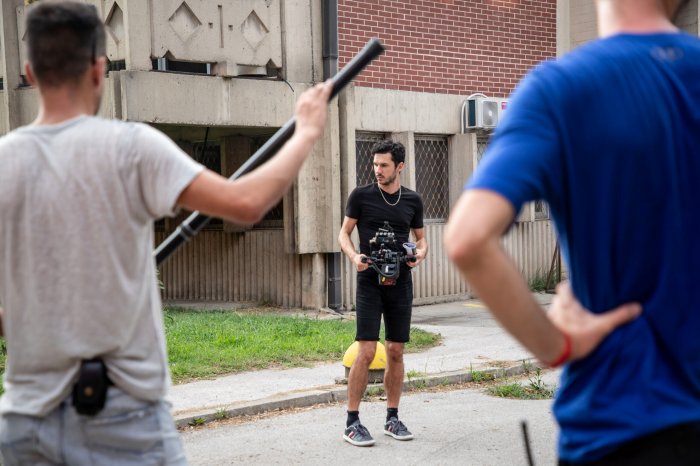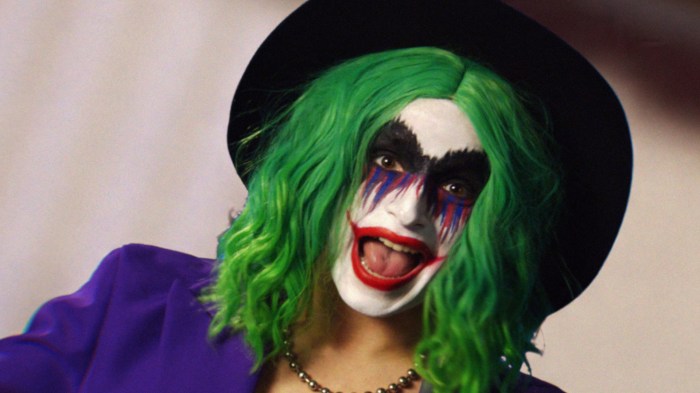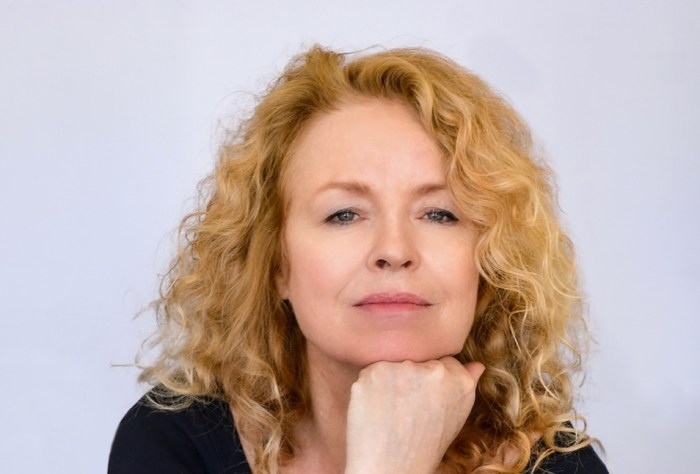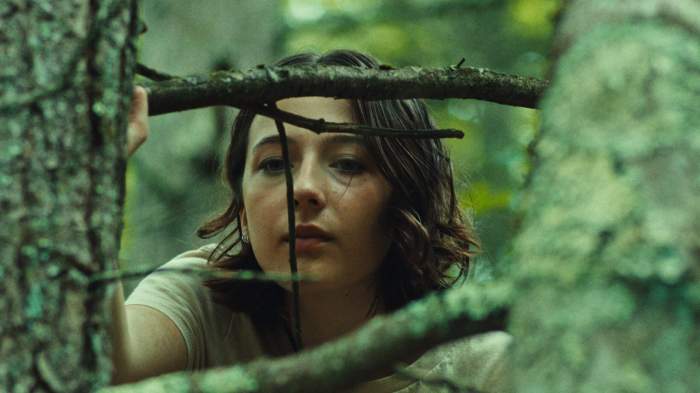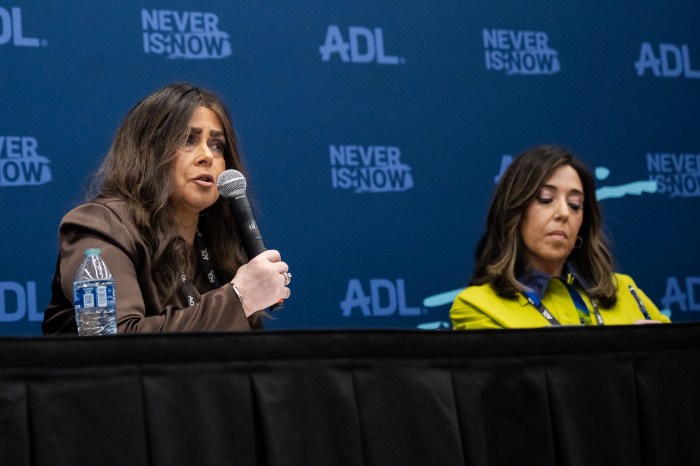Takashi Miike's second shot at American audience lost in translation.
By By: STEVE ERICKSON
SUKIYAKI WESTERN DJANGO
Directed by Takashi Miike
First Look Studios
Opens Aug. 29
Angelika
I doubt “Sukiyaki Western Django” will be getting screened in too many college classrooms. However, for all its hip posturing, there's something academic about it, as it runs through gestures whose coolness passed a decade ago. With its genre-bending pastiche and quotes from other films, it's a textbook example of postmodernism.
More interestingly, it raises the question of what exactly a national cinema is. Although made in Japan, with an entirely Japanese cast (apart from Quentin Tarantino's small role), its dialogue is spoken entirely in English, a language director Takashi Miike himself doesn't understand and which some of the actors appear to be speaking phonetically.
Its ending reveals that it's a prequel to Italian director Sergio Corbucci's 1966 film “Django”,” whose score it liberally appropriates. Alas, “Sukiyaki Western Django” is more interesting to think about after the fact than while watching it.
In a lonely mountain town, two clans — the Genji, dressed in white, and the Heike, clad in red — fight for a pot of gold. A nameless gunman (Hideaki Ito) enters the town. Both clans attempt to get him to join their side, but the more time he spends there, the more he learns about their battle's complexity.
Miike expands upon the story with flashbacks, shot in a bleached-out palette that emphasizes greens and yellows, and a framing device in which Tarantino kills a snake and eats its egg.
Miike's cult following in the West stems largely from the ultraviolence of “Audition” — his only film to reach anything approaching a wide audience in American theaters — and “Ichi the Killer.” In the “Sukiyaki Western Django” press kit, Eli Roth and Guillermo del Toro testify to Miike's bona fides as a bad boy.
Showtime produced his hour-long 2006 film “Imprint” for its “Masters of Horror” series, but they were so appalled by its mixture of abortion and torture imagery that they refused to show it. Although nothing in the “torture-porn” genre has shown the craftsmanship or moral and political intelligence of “Audition,” it probably wouldn't exist without Miike's example.
Despite his reputation as a gorehound, Miike has also made family films — such as “Zebraman” and “The Great Yokai War” — and uncategorizable experiments like “Big Bang Love, Juvenile A,” a Jean Genet-inspired homoerotic prison drama.
The thread tying his work together isn't violence, but an off-kilter wit and tendency toward the bizarre that unites “Ichi the Killer” and “Zebraman.”
Miike hasn't made another film like “Sukiyaki Western Django,” but plenty of other directors, such as Robert Rodriguez and Thailand's Wisit Sasantieng, have. Casting Tarantino, while it may draw an audience, didn't do the film any favors. To put it mildly, acting is not Tarantino's greatest skill. His line delivery is every bit as awkward and mannered as the Japanese actors. I'm still not sure exactly what accent he thinks he's speaking with.
Miike's biggest problem, however, is that he's made a film which makes “Kill Bill” look like a neo-realist slice of life.
The idea of basing a film around quotes and pop culture references stems from the French New Wave, but in the early work of Jean-Luc Godard, François Truffaut, and Jacques Rivette, autobiography and literary references played as large a role as other movies. Godard's knowledge of a petty crook's life may have been minimal, but films like “Vivre sa Vie” and “Pierrot Le Fou” demonstrate that he certainly knew how love feels.
When Sergio Leone began making “spaghetti Westerns” around the same time, he made an intervention into an American genre, one that wound up having a wide impact on how our country's own directors and audiences perceived it.
“Sukiyaki Western Django” is festooned with cultural references, ranging from Shakespeare's “Henry V” to Akira Kurosawa's” Yojimbo,” itself adapted from a Dashiell Hammett novel. At base, I think it's trying to say something about how the words and images borrowed can get warped or altered in translation. That remains subtext, though, as the film itself settles for an endless series of 45-degree camera angle shots and gun battles that leave the narrative riddled with holes.
The violence in “Audition” and “Ichi the Killer” was painful to watch and hard to forget, but Miike's treatment of carnage here is too over-the-top to take seriously yet not quite lighthearted enough to be funny. His interest in storytelling seems minimal; the plot quickly grows difficult to follow.
There's an innocence to Godard's early '60s films, or even Sergio Leone's more cynical work, that's missing from “Sukiyaki Western Django.” I don't know if the decision to use English-language dialogue was a joke or a commercial calculation, but it wreaks havoc on the film's performances, while losing its humor value after about ten minutes.
Everything in “Sukiyaki Western Django” has been said before. Miike may be suggesting that this is the fate of contemporary directors — even Mexican director Carlos Reygadas' self-consciously earnest, serious, and spiritually-minded “Silent Light” relies on references to Carl Dreyer for its impact — but the film itself is a chore to sit through. It's a shame that “Big Bang Love, Juvenile A” came out straight-to-DVD in the US while “Sukiyaki Western Django” represents Miike's best shot at an American audience since “Audition.”








